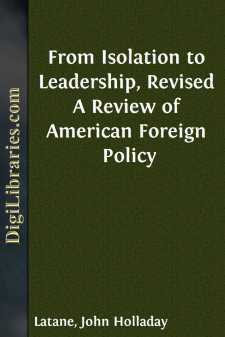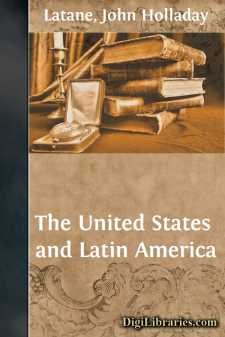Categories
- Antiques & Collectibles 13
- Architecture 36
- Art 48
- Bibles 22
- Biography & Autobiography 813
- Body, Mind & Spirit 142
- Business & Economics 28
- Children's Books 17
- Children's Fiction 14
- Computers 4
- Cooking 94
- Crafts & Hobbies 4
- Drama 346
- Education 46
- Family & Relationships 57
- Fiction 11829
- Games 19
- Gardening 17
- Health & Fitness 34
- History 1377
- House & Home 1
- Humor 147
- Juvenile Fiction 1873
- Juvenile Nonfiction 202
- Language Arts & Disciplines 88
- Law 16
- Literary Collections 686
- Literary Criticism 179
- Mathematics 13
- Medical 41
- Music 40
- Nature 179
- Non-Classifiable 1768
- Performing Arts 7
- Periodicals 1453
- Philosophy 64
- Photography 2
- Poetry 896
- Political Science 203
- Psychology 42
- Reference 154
- Religion 513
- Science 126
- Self-Help 84
- Social Science 81
- Sports & Recreation 34
- Study Aids 3
- Technology & Engineering 59
- Transportation 23
- Travel 463
- True Crime 29
From Isolation to Leadership, Revised A Review of American Foreign Policy
Categories:
Description:
Excerpt
I
ORIGIN OF THE POLICY OF ISOLATION
The Monroe Doctrine and the policy of political isolation are two phases of American diplomacy so closely related that very few writers appear to draw any distinction between them. The Monroe Doctrine was in its origin nothing more than the assertion, with special application to the American continents, of the right of independent states to pursue their own careers without fear or threat of intervention, domination, or subjugation by other states. President Monroe announced to the world that this principle would be upheld by the United States in this hemisphere. The policy of isolation was the outgrowth of Washington's warning against permanent alliances and Jefferson's warning against entangling alliances. Both Washington and Jefferson had in mind apparently the form of European alliance common in their day, which bound one nation to support another both diplomatically and by force in any dispute that might arise no matter whether it concerned the interests of the first state or not. Such alliances were usually of the nature of family compacts between different dynasties, or between different branches of the same dynasty, rather than treaties between nations. In fact, dynastic aims and ambitions were frequently, if not usually, at variance with the real interests of the peoples affected. It will be shown later that neither Washington nor Jefferson intended that the United States should refrain permanently from the exercise of its due influence in matters which properly concern the peace and welfare of the community of nations. Washington did not object to temporary alliances for special emergencies nor did Jefferson object to special alliances for the accomplishment of definite objects. Their advice has, however, been generally interpreted as meaning that the United States must hold aloof from world politics and attend strictly to its own business.
The Monroe Doctrine was a perfectly sound principle and it has been fully justified by nearly a century of experience. It has saved South America from the kind of exploitation to which the continents of Africa and Asia have, during the past generation, fallen a prey. The policy of isolation, on the other hand, still cherished by so many Americans as a sacred tradition of the fathers, is in principle quite distinct from the Monroe Doctrine and is in fact utterly inconsistent with the position and importance of the United States as a world power. The difference in principle between the two policies can perhaps best be illustrated by the following supposition. If the United States were to sign a permanent treaty with England placing our navy at her disposal in the event of attack from Germany or some other power, on condition that England would unite with us in opposing the intervention of any European power in Latin America, such a treaty would not be a violation of the Monroe Doctrine, but a distinct recognition of that principle. Such a treaty would, however, be a departure from our traditional policy of isolation....













